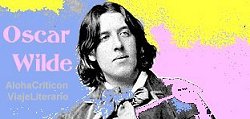 Sinopsis
Sinopsis
Un estudiante desea bailar con la hija del profesor. Ésta le promete que bailará con él en la fiesta del príncipe si le consigue una rosa roja. El problema es que no es época de rosas rojas y es casi imposible encontrar la flor. Un ruiseñor, testigo de los lamentos del joven, intentará ayudarle.
Crítica
“El Ruiseñor y La Rosa” es uno de los varios, cortos y excelentes cuentos que Oscar Wilde escribió a sus hijos Vivyan y Ciryl.
El texto presenta una narración delicada y elegante desde la perspectiva del ruiseñor del título, llena de extrema sensibilidad y maestría léxica en donde no sobra una palabra en la hermosa imaginería, en las descripciones vívidas del ambiente natural que nos permite sentir, oler, conectar con las ansias del romántico y sufridor pájaro por conceder el premio amoroso para el muchacho.
Es una auténtica delicia este cuento “con mensaje” y con un intenso y maravilloso clímax, como así lo son otras pequeñas obras maestras como “El príncipe feliz”, “El cumpleaños de la infanta” o “El insigne cohete”.
Leamos el inicio del cuento en su lengua original:
“She said that she would dance with me if I brought her red roses,” cried the young Student; “but in all my garden there is no red rose.”
From her nest in the holm-oak tree the Nightingale heard him, and she looked out through the leaves, and wondered.
“No red rose in all my garden!” he cried, and his beautiful eyes filled with tears. “Ah, on what little things does happiness depend! I have read all that the wise men have written, and all the secrets of philosophy are mine, yet for want of a red rose is my life made wretched.”
“Here at last is a true lover,” said the Nightingale. “Night after night have I sung of him, though I knew him not: night after night have I told his story to the stars, and now I see him. His hair is dark as the hyacinth-blossom, and his lips are red as the rose of his desire; but passion has made his face like pale ivory, and sorrow has set her seal upon his brow.”
“The Prince gives a ball to-morrow night,” murmured the young Student, “and my love will be of the company. If I bring her a red rose she will dance with me till dawn. If I bring her a red rose, I shall hold her in my arms, and she will lean her head upon my shoulder, and her hand will be clasped in mine. But there is no red rose in my garden, so I shall sit lonely, and she will pass me by. She will have no heed of me, and my heart will break.”
“Here indeed is the true lover,” said the Nightingale. “What I sing of, he suffers – what is joy to me, to him is pain. Surely Love is a wonderful thing. It is more precious than emeralds, and dearer than fine opals. Pearls and pomegranates cannot buy it, nor is it set forth in the marketplace. It may not be purchased of the merchants, nor can it be weighed out in the balance for gold.”
